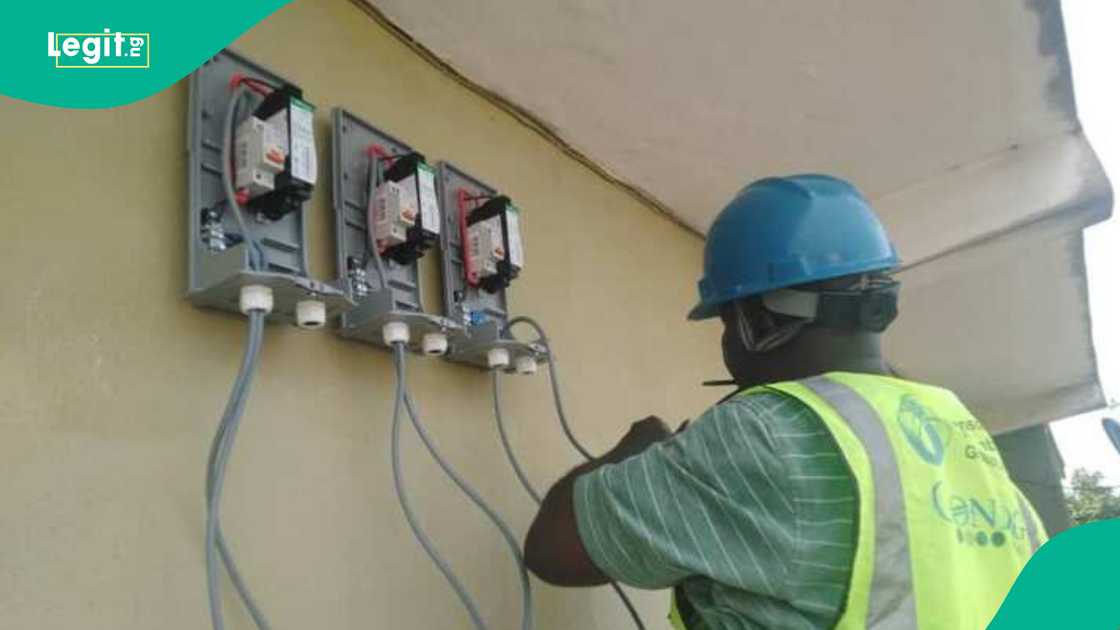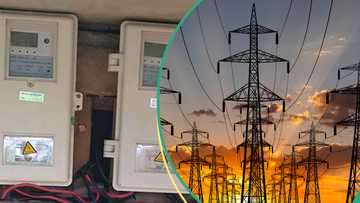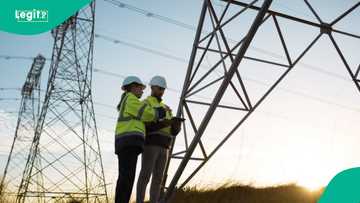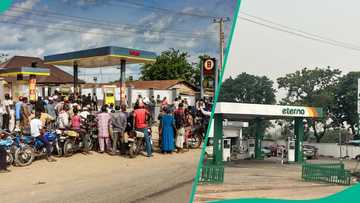Electricity Tariff Cut by Enugu State Sparks Nationwide Outcry as Nigerians Resist Paying Bills
- Electricity distribution companies (DisCos) disclosed that the tariff cut by the Enugu Electricity Regulatory Commission (EEC) has thrown up another concern
- The DisCos said that consumers in other states are demanding tariff cuts in line with Enugu’s steps
- They disclosed that several consumers have threatened to stop paying their bills if they do not slash tariffs
Legit.ng’s Pascal Oparada has reported on tech, energy, stocks, investment and the economy for over a decade.
Nigeria’s electricity distribution companies (DisCos) has said the decision by the Enugu Electricity Regulatory Commission (EERC) to slash tariffs triggered a chain reaction across the country.
The Association of Nigerian Electricity Distributors (ANED) revealed that consumers in other states are now refusing to pay, demanding similar reductions in their areas.

Source: Getty Images
Mounting pressure across other states
On July 21, the EERC cut the Band A electricity tariff in Enugu from ₦209 to ₦160/kWh. While the move was celebrated locally, DisCos nationwide are warning that it could destabilise the entire power sector.
According to ANED CEO Sunday Oduntan, the tariff reduction has unleashed a wave of pressure on DisCos in other states.
He said some customers have outright refused to pay, while others are demanding immediate tariff cuts in their regions.
"Since the tariff order for Enugu was released, our members have been inundated with requests and even threats from customers,” Oduntan said in a statement.
“Some say they’ll stop paying until tariffs drop,” he said.
No coordination with the federal regulator
DisCos criticised the Enugu action, saying it lacked coordination with the Nigerian Electricity Regulatory Commission (NERC) and other key players in the national grid.
While they acknowledge recent legal reforms allowing states to operate independent electricity markets, they insist such moves must align with market-wide cost-recovery frameworks.
Unilateral actions, they say, risk causing liquidity shortfalls that hurt the entire energy supply chain, from GenCos to gas suppliers.
Stability of the power market at risk
The DisCos said the tariff cut threatens the stability and liquidity of the Nigerian Electricity Supply Industry (NESI).
Already operating under tight margins, they fear that more uncoordinated tariff reductions will deepen financial losses and lead to more power supply challenges.
“It is not our goal to frustrate customers,” ANED said. “But the tariff rates reflect economic realities and operational costs.”
Call for a transparent subsidy structure
TheCable reported that the association also criticised the logic behind EERC’s decision, which it said relies on subsidies without a clear payment plan. ANED stressed that any subsidy must be transparently designed, fully funded, and promptly disbursed.
They warned that delayed or unfunded subsidies only worsen cashflow issues, threatening the survival of generation and distribution companies already owed nearly ₦5 trillion.
States lack the capacity for the subsidy burden
Citing Minister of Power Bayo Adelabu, the group noted that states implementing lower tariffs must shoulder the cost of resulting subsidies. Most states, they argued, are already battling tight budgets and governance costs.
“We believe NERC and the federal ministry of power must align state and national goals,” the association said, warning that a fragmented subsidy regime could derail efforts to make power affordable, reliable, and sustainable for all Nigerians.
North East to pay the highest electricity tariff
A prior report by Legit.ng disclosed that Nigeria's North East will pay the highest tariffs as the Nigerian government plans tariff hikes to reduce subsidies.
A 2024 report by the Nigerian Electricity Regulatory Commission (NERC) shows that residents of Adamawa, Borno, and Yobe States, served by the Yola Electricity Distribution Company (YEDC), will pay the highest electricity tariff in Nigeria, averaging N266.64/kWh.

Source: UGC
This rate is N91.33 above the national average of N175.31/kWh.
10 African countries with better electricity access than Nigeria
Legit.ng earlier reported that electricity access is a cornerstone of economic development, public health, and overall quality of life.
While many parts of Africa still grapple with significant energy deficits, several nations are making impressive strides toward universal electricity access.
Their success offers valuable lessons, particularly for countries like Nigeria, which, despite its vast resources, faces persistent challenges in providing reliable power to its citizens.
Proofreading by Funmilayo Aremu, copy editor at Legit.ng.
Source: Legit.ng






